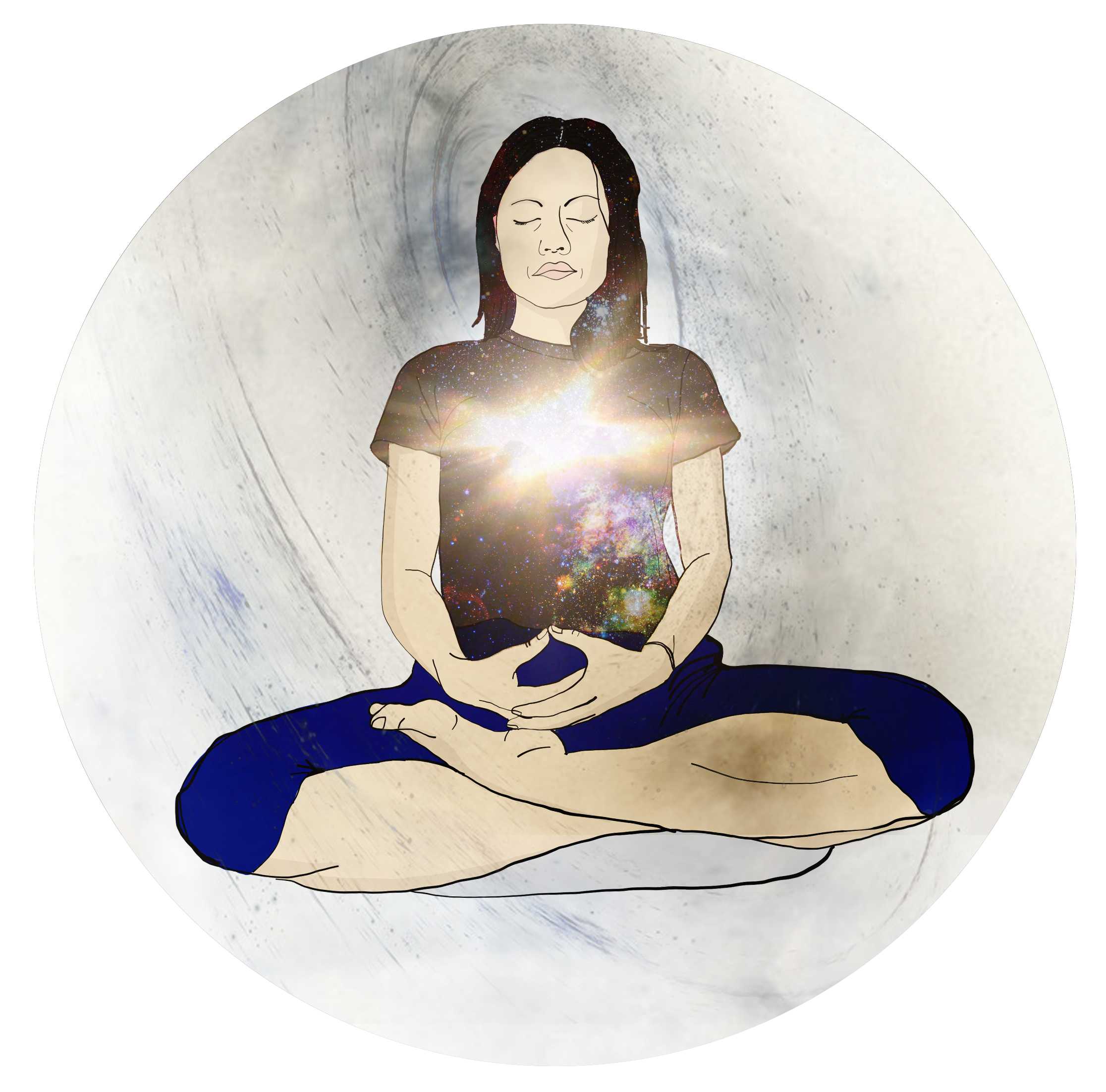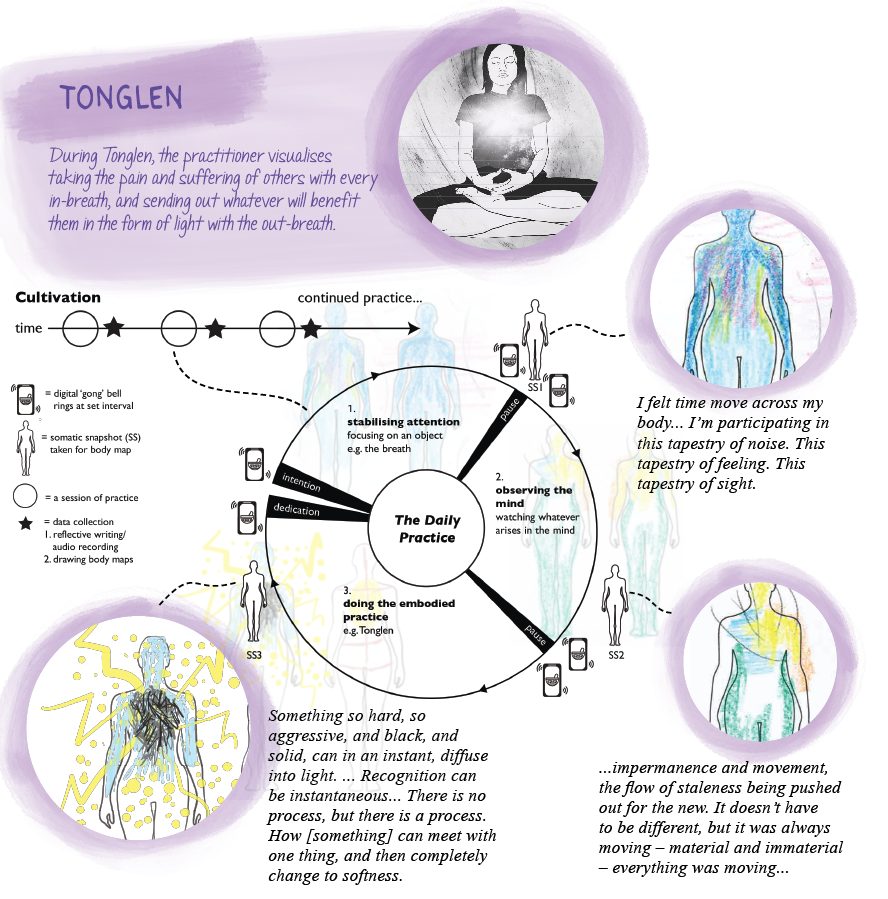Human-computer interaction is witnessing increasing interest inspired by traditional mind and body contemplative practices and their potential benefit to aspects of human flourishing. In this area, authentic descriptions of first-person lived experience informing design are few. Most researchers in HCI are not trained in observing the mind. Motivated to contribute to understanding and articulating an authentic account of contemplative practice for design in HCI, this project investigates the practice of Tonglen, a traditional Buddhist meditation technique for compassion cultivation.


This project discusses the potential for researchers to train in developing the clarity of self-observation and ability to more accurately express and communicate their lived experience and embodied knowledge. We propose visual ways of documenting the lived experience of meditation in order to refine the ability for researchers to discuss and share this with others in textual and non-textual forms that can be valuable to designers for contextualising bodily experience and gaining insight into internal cognitive and somatic processes. Our project argues for the methodological value for first-person methods of self-enquiry and accounts of self-evidence that offer insight into, and directions for, the refinement of first-person approaches for future HCI research in body and mind cultivation practices.
People
- Kristina Mah
- Dr Lian Loke
- Dr Luke Hespanhol
Publications
- Mah, K., Loke, L., & Hespanhol, L. (2020, December). Understanding Compassion Cultivation for Design: Towards an Autoethnography of Tonglen. 32nd Australian Conference on Human-Computer Interaction (pp. 748-754).
- Kristina Mah, Lian Loke, and Luke Hespanhol. 2021. Towards a contemplative research framework for training self-observation in HCI: A Study of Compassion Cultivation. In ACM Transactions on Computer-Human Interaction (TOCHI).
